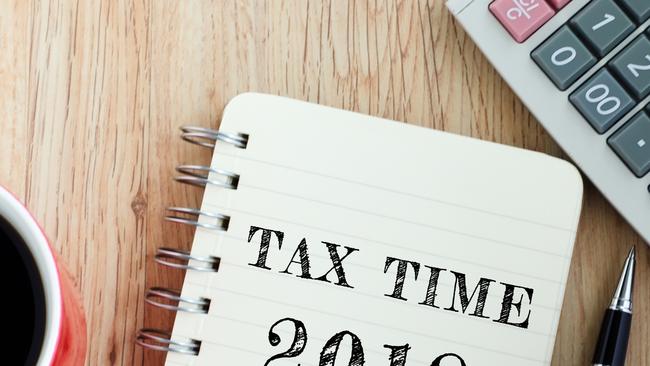Why the ATO is defying the Coalition over small business tax appeals
The ATO thinks it can tough out the last days of the Coalition and get back to bashing small business under Labor.

In its final weeks, the Morrison government is engaged in an intense battle with the Australian Taxation Office to determine whether there will be a fair small business tax appeal system, and one that’s not controlled by the ATO.
And if the tussle between the government and the ATO is not resolved, then the blatant abuses of small business over tax issues, and the “kangaroo court” appeal systems, plus the role and treatment of whistleblower Richard Boyle, will all become a major election issues.
In such an issue the ALP will be on the back foot because its small business tax policy leaves tax appeals with the ATO.
Yet the ATO’s blatant abuse of small business has been recognised by both major parties and the joint parliamentary tax and revenue committee.
On November 28 the government announced it would set up an independent small business tax tribunal that would operate from March 1.
This tax tribunal would handle small business appeals and be responsible to the Administrative Appeals Tribunal rather than the ATO.
Most importantly it provided that appeals would take place without lawyers although if the ATO believed in special circumstances that the case required lawyers then the ATO would fund the small business. Under the proposal there were detailed provisions to enable the small business cases to be properly vetted before they moved to the new tribunal and of course it was always open to the small business community to use the existing appeal bodies.
But as I pointed out on February 18 the first draft of the regulations from government employees completely undermined the Coalition proposal.
The draft stated that the ATO “may” engage lawyers, and if it does, it “may” also decide to meet the costs of legal representation for small business.
The drafters of that clause must have known that it would enable the ATO to continue its abuse of small business because there was no proper provision to fund any small business legal defence.
Remember the Australian Taxation Office, as a bulk buyer of legal services, is able to get its legal representation at fraction of the cost of what a small business would have to pay.
Worse still, because the ATO has a “death gun” which enables it to bankrupt a small business during or soon after a hearing. So lawyers are reluctant to work for a small business because they might never be paid. Accordingly representing small business is high risk, and there is a shortage of tax lawyers, so the charges are usually high.
It would be best if there was no provision for lawyers in the small business tribunal but if the ATO insists it needs the right for lawyers then the ATO must pay the full costs of the small business’ lawyers. That would then attract many more lawyers to the small business tax area because they know they would be paid. And the ATO, knowing it had to pay both sides in the tribunal, would only use lawyers when it was really necessary.
The ATO’s attempts to undermine the government reflect the fact that small business abuse is part of the way it operates. On too many occasions ATO auditors assess small business on a negotiating basis rather than what actually is owed in tax. And in that negotiation, the ability of the ATO to bankrupt the business in 24 hours gives it an enormous advantage.
But it is also undermining confidence in the tax system.
It had been expected that the ATO would announce a set of procedures that would comply with the government’s small business tribunal rules and that announcement should have been made before March 1. But it hasn’t been made and the government is under pressure to give in to the ATO.
To the government’s great credit, it would seem that the cabinet is standing up to the ATO and is not prepared to buckle for a quick settlement that will perpetuate the abuse.
The ATO appears still optimistic that it can tough it out until Labor comes to government and that Labor policy will be made into law.
That would be a joyous day for the ATO, because the ALP will set up an appeals body that will still be a part of the ATO, albeit via a second commissioner.
That will give some short-term protection to small business against ATO abuse, but while the ATO retains control of the appeal process, it knows that in a few years it will be able to return to its old ways.
But it is a big step for the ATO to challenge an elected government and be prepared to have an election fought on small business tax appeals, a community debate that will further undermine confidence in the revenue system.
But as we have seen with the 161-year prison sentence penalty on the charges facing the whistleblower Richard Boyle, the ATO is determined to stop more of the truth coming out about what it is happening within its operations. The 161 year prison demand will be a highlight of this part of the election campaign which will extend to the overall policy on whistleblowing. The parliamentary committee showed that the systems in the ATO are in a lot of trouble, despite huge investment, so there is a lot to come out.
What is required is old fashioned and honest tax assessments in the small business sector. That’s what happens in the large corporate sector but it doesn’t happen in small business.
Australians have to hope that the federal cabinet will not cave in to the continuation of small business abuse and if the ATO won’t comply with the elected government then its conduct must be the subject of an election campaign around the country.



